New budget ideas
jannie
17 years ago
Related Stories
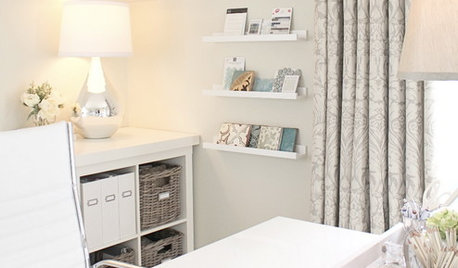
BUDGET DECORATINGBudget Decorator: 10 Tips for a Stylish and Personal Home Office
Fashion an efficient and beautiful workspace on the cheap with these industrious ideas
Full Story
PLANTING IDEASStretch the Budget, Seasons and Style: Add Conifers to Your Containers
Small, low-maintenance conifers are a boon for mixed containers — and you can transplant them to your garden when they’ve outgrown the pot
Full Story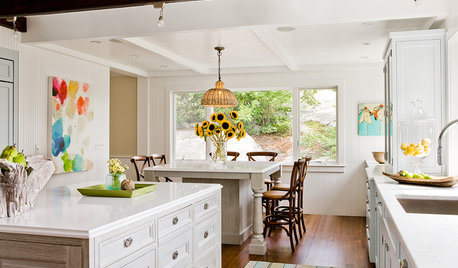
BUDGET DECORATINGBudget Decorator: 16 Ways to Bring Summer Into Your Kitchen
Give your kitchen an easy-breezy feel by swapping in summery colors and natural accessories, and stowing cool-weather cooking stuff
Full Story
HOUZZ TOURSMy Houzz: Modern and Airy Style on a Budget
Patience, creativity and help from family turn a baker’s cookie-cutter condo into a bright and cheerful home
Full Story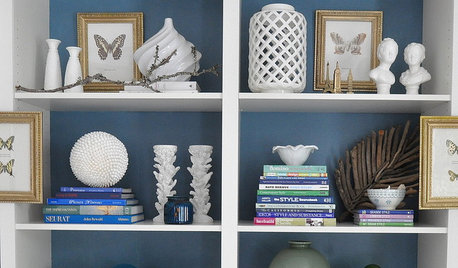
MOST POPULARBudget Decorator: Shop Your Home for a New Look
Redecorate without spending a cent by casting a creative eye on the showroom called home
Full Story
DECORATING GUIDESBudget Decorator: 15 Shortcuts to Holiday Style
If playing Santa has tapped out your wallet and your patience, consider these stylish, time-saving decorations an early Christmas present
Full Story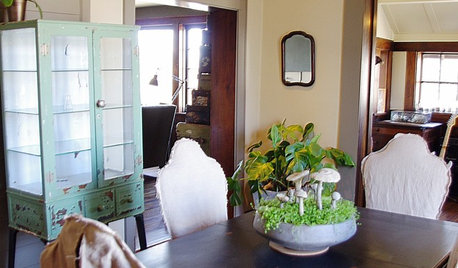
BUDGET DECORATINGBudget Decorator: 12 Cheap and Chic Fall Centerpieces
Some of the best things in fall are free (or nearly so) and make for beautiful, meaningful displays to brighten a table
Full Story
MODERN ARCHITECTUREBuilding on a Budget? Think ‘Unfitted’
Prefab buildings and commercial fittings help cut the cost of housing and give you a space that’s more flexible
Full Story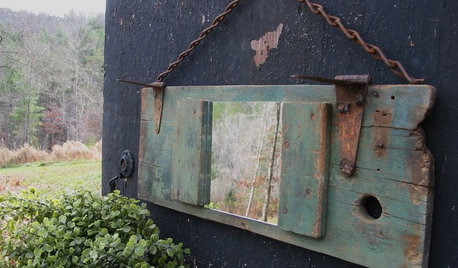
DECORATING GUIDESDecorating on a Budget: 12 More Repurposing Ideas
Breathe new life into that old stuff for little to no cost
Full Story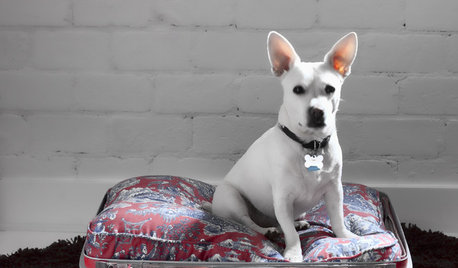
DECORATING GUIDESDecorating on a Budget: 10 Repurposing Ideas
See how to reinvent salvage finds and your own stuff into things you may actually use
Full StorySponsored
Columbus Area's Luxury Design Build Firm | 17x Best of Houzz Winner!



joyfulguy
greg_h
Related Discussions
Bathroom- how to get a budget idea?
Q
Fixer upper & budget nearly gone..MOLD in Bathroom walls! Need ideas
Q
Need ideas for built in bookcases on a budget
Q
Bedroom ideas on a budget
Q
Chemocurl zn5b/6a Indiana
mommie_rose
greg_h
joyfulguy
bud_wi
liz_h
bud_wi
joyfulguy
jannieOriginal Author
joyfulguy
quiltglo
greg_h
asm198 - Zone 6a (MO)
joyfulguy
jannieOriginal Author
jannieOriginal Author
cynic
joyfulguy
mc_hudd
jmzms
dchall_san_antonio